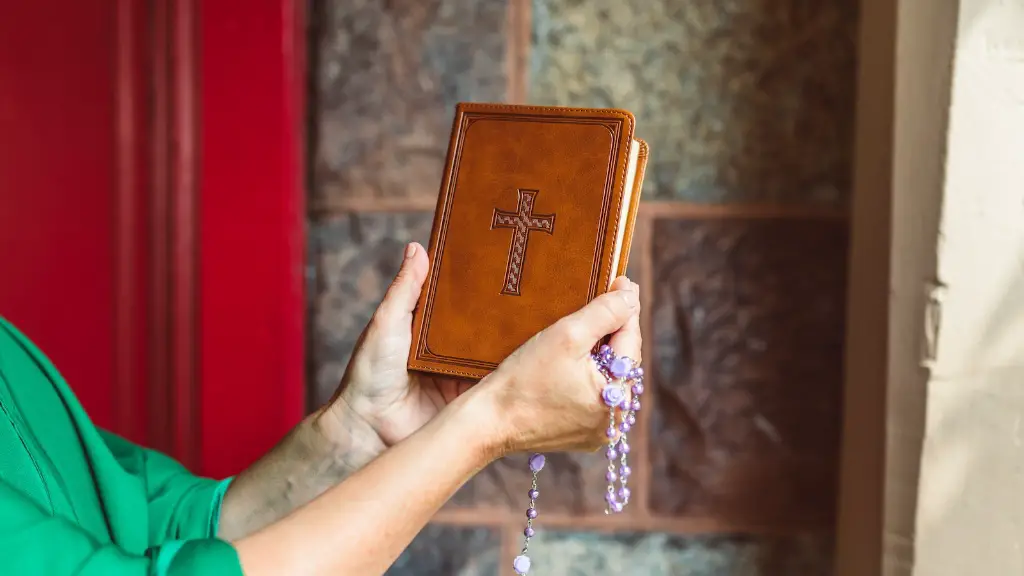God’s Perspective
The Bible talks a lot about the responsibility that humanity has to take care of the natural world. There are numerous passages that urge us to protect the delicate balance of creation, to show respect for nature, and to exercise loving stewardship over resources. For example, Genesis 2:15 says, “The Lord God took the man and put him in the Garden of Eden to work it and take care of it.”
As Christians, we are meant to be proactive in helping to preserve the environment, and we have an obligation to act responsibly to protect the planet God has given to us – that includes doing our part to prevent the adverse effects of climate change.
Scientific Evidence
The scientific evidence for climate change is overwhelming and growing every day. 97% of climate scientists agree that human activity is the primary cause of global warming in the past century. Carbon dioxide, methane, and other greenhouse gases are trapping heat on Earth’s surface and causing the planet to warm rapidly. As a result, we are seeing all sorts of extreme weather and climate events, from devastating floods to brutal droughts and increasingly powerful hurricanes.
No one can deny that the weather and climate are changing. The challenge right now is to understand what is causing these changes and what we can do to prevent any further damage to our planet.
Christian Response
In the face of all this, what is the Christian’s responsibility? The Bible tells us that the Earth is the Lord’s and all its fullness (Psalm 24:1). We have been given a mandate to protect and preserve creation, to “serve and preserve it” (Genesis 2:15). We are stewards of the planet, and it is our duty to take care of it as best we can.
Climate change is a moral issue as well as a scientific one. It challenges us to consider how we can best work together to make a difference. We need to recognize our responsibility for the effects of our choices on the environment and commit to using our voices to advocate for policies that will reduce emissions and protect the planet.
Evangelism & Creation Care
We must remember that proper stewardship of creation is an integral part of our Christian calling. We cannot simply ignore the plight of the planet and expect our faith to remain strong and vibrant. Nor can we afford to treat environmental issues as peripheral
Instead, we must embrace our mission to care for creation and view it as an opportunity to evangelize. As Christians, we have a unique perspective on the importance of taking action to protect the planet, and our faith can be an inspiring force for change. By speaking out about the dangers of climate change, and by leading the way in finding solutions, we can help to bring about meaningful progress.
Political Response
Finally, we must recognize the role of government in addressing climate change. Governments have the power to enact laws and policies that are aimed at curbing emissions and mitigating the impacts of global warming.
This means engaging in political discourse and advocating for green-minded policies. Our faith gives us the courage and conviction to speak out and make our opinions heard, and as Christians, we must do whatever we can to engage in this dialogue and influence the decisions of our governments.
Sacrifice & Sustainability
Sacrificing a few personal luxuries to ensure a sustainable future for the planet that God has entrusted us with is an act of humility and obedience. It is our responsibility to conserve resources, adopt smarter energy sources and reduce waste.
We must consider how our choices will impact the environment and do our best to reduce our carbon footprints. Not only is it less costly and better for the planet, but it is also an act of faith, reminding us of our moral obligation to care for and protect God’s creation.
Human Rights & Climate Change
Climate change is an important human rights issue. Those who are most vulnerable, who often have the least access to resources, are often the most affected by extreme weather, flooding, drought, and other climate-related disasters.
In many cases, poverty exacerbates the effects of these disasters. We must acknowledge these injustices and use our influence to support and protect those in need. From providing aid to vulnerable communities to advocating for policies that are more equitable and just, Christians can make a real difference in combating climate change.
Lifestyle Choices
Another key area to focus on is our own lifestyle choices. We can all play a part in reducing our carbon footprints, from using energy-efficient appliances and driving more fuel-efficient cars, to eating a more plant-based diet and reducing food waste.
Each one of us can make choices that are better for the environment and better for the planet. We can also use our voices by discussing climate change with family, friends and colleagues, and spreading the word about the importance of caring for creation.
Works of Justice & Mercy
Ultimately, our Christian faith demands that we respond to climate change with works of justice and mercy. We must engage in meaningful action by taking initiatives to be more eco-friendly, embodying our faith in tangible ways, and joining forces with those around us to make a lasting difference.
This is a daunting challenge, but it is also an opportunity to practice our faith, display our love for our neighbors, and honor God’s command to care for his creation.




